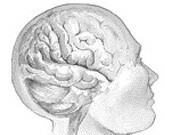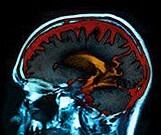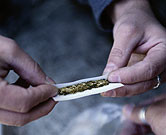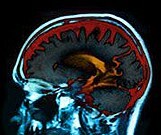Tag: Brain
Energy Drinks Plus Alcohol Tied to Brain Injury in Teens
Sports-related incidents remain the most common cause of recent traumatic brain injury
Chemoradiation for Glioblastoma Takes Toll on Brain
Structural changes include reduced gray matter volume and ventricular enlargement
Meta-Analysis Links Adiposity to Increased Risk of Meningioma
High versus low levels of physical activity linked to reduction in risk of meningioma
Leptin Suppresses the Rewarding Effects of Running
Leptin inhibits 'runners high' via STAT3 signaling in dopamine neurons in mouse model
August 2015 Briefing – Neurology
Here are what the editors at HealthDay consider to be the most important developments in Neurology for August 2015. This roundup includes the latest...
Alterations in Topological Architecture of Brain in PTSD
Decreased path length and increased clustering coefficient, global efficiency, and local efficiency
Mixed Results for Cannabis Effect on Developing Brain
One of two new studies suggests cannabis use in teen years might be more harmful for males
Exercise, Supplements Don’t Help Preserve Cognition in Elderly
Two trials cast doubt on these widely touted strategies
AM, PM Cortisol Tied to Brain, Cognitive Variances in Later Life
Higher evening salivary cortisol levels tied to lower brain volume, worse cognitive function
Early Life Adversity Linked to Brain Changes in Adolescent Boys
Early life adversity linked to variation in brain structure directly and via internalizing symptoms














